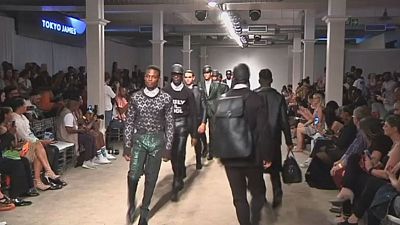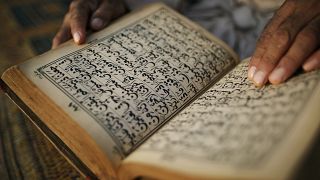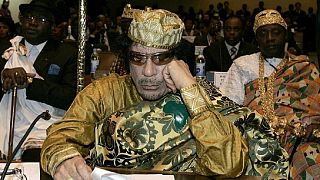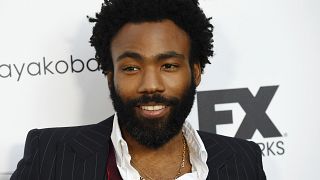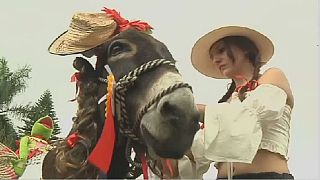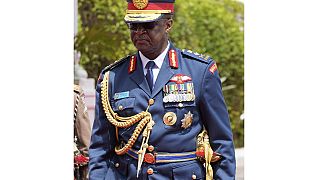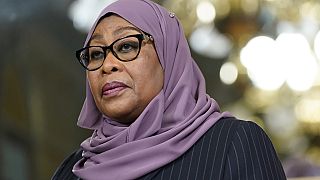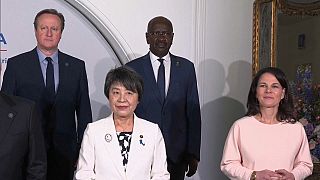It is the only platform for designers of men’s clothes on the continent that does not have to share the spotlight with the more traditional women’s fashion scene, organizers of the South Africa Menswear Week (SAMW) say.
In its 5th edition this year, SAMW showed African designers challenging the imagination of menswear style and standing up to be counted alongside some of the world’s top fashion creators.
Mzuksi Mbane – an accounting graduate with no formal design training, used his brand ‘Imprint’ to stay true to African influences, with a range of distinct prints on soft but structured pieces and inspired by style beyond the designer’s home base, South Africa.
“For me I always play around with the story of a traveler, so it’s not just a person focused in SA, it’s an African man from all over Africa because if you look at my collection that I did for Winter, it was focused a lot from Morocco so it was Africa from South Africa, it carried stories from Morocco and then I had pieces there that I took from Ghana, so there is always that mix because it is supposed to unify a, it is supposed to focus on roots that we share as Africans. So yes I take a lot from Africa as a whole,” said the designer.
“Imprint’s style is quite contemporary and the details, oh my gosh! It’s fantastic and the mixture of the colours, it’s not every day you see a designer that can combine such kind of basic colours together and come up with such details,” said Evans Johns, a guest at the show.
UK-born Nigerian designer, Tokyo James’ urban street-wear chic went beyond the African print staple for looks he said are meant to cater to the tastes of men anywhere in the world.
“I draw inspiration from Nigeria but I design for a global audience. I strongly believe Africa is part of the world so I tend not to like to just limit myself to just to the Africa aesthetic. Africa is part of the world so when I am designing I am designing for the man in general, so it could be a European man, it could be the Asian man, it could be the African man. I am designing for the man, basically just as long as you are a man you can wear Tokyo James,” he said.
Sponsored by carmaker Lexus, the event was held at The Palms in Woodstock, Cape Town – an airy space that organizers said was classy yet simple enough not to compete with the spirit of SAMW, which aims to take men’s fashion more seriously.
“There are hundreds of fashion weeks on the continent, the problem is they are mostly driven by entertainment or other effects. What we have done to separate ourselves from everybody else is to focus on the clothes. We have only the best designers that get curated and the whole process to curate, to get the best clothing on to our runway and that is why everyone comes here to look at this point where the clothes is, because if they wont to see what are the new trends, what is happening in African fashion, this is where they come to find it because we have got the best people on our platform on our ramp,” said Ryan Beswick, executive director of SAMW.
SAMW takes place twice a year and is modeled around the London Fashion Week Men’s.
It also provides opportunities for African designers to eventually show their work in London – one of the world’s top fashion capitals.
This year, some critics challenged African designers to take it to the next level and make a bigger mark on the global scene by setting a new standard of quality.
“We take the style as it is and we know how to interpret the African traditions and the style and you know… the ethnicity and what happens is that the rest of the world takes that style and adapts it and kind of, sometimes improves on it, so we need to learn to refine our own style ourselves and make it top notch that when the world sees it they are like wow! You know? And they stand back and they look and they think, there is nothing you can actually improve on,” said Boitumelo Pooe, from the South Africa Fashion Council.
South Africa has one of the continent’s most successful fashion industries and was worth more than 200 billion rand ($15 billion) at the end of 2014.
Other designers who took part in the event were Nao Serati, Nguni Shades Kidd Hunta and Craig Jacobs as well as Jenevieve Lyons and Kim Gush.



